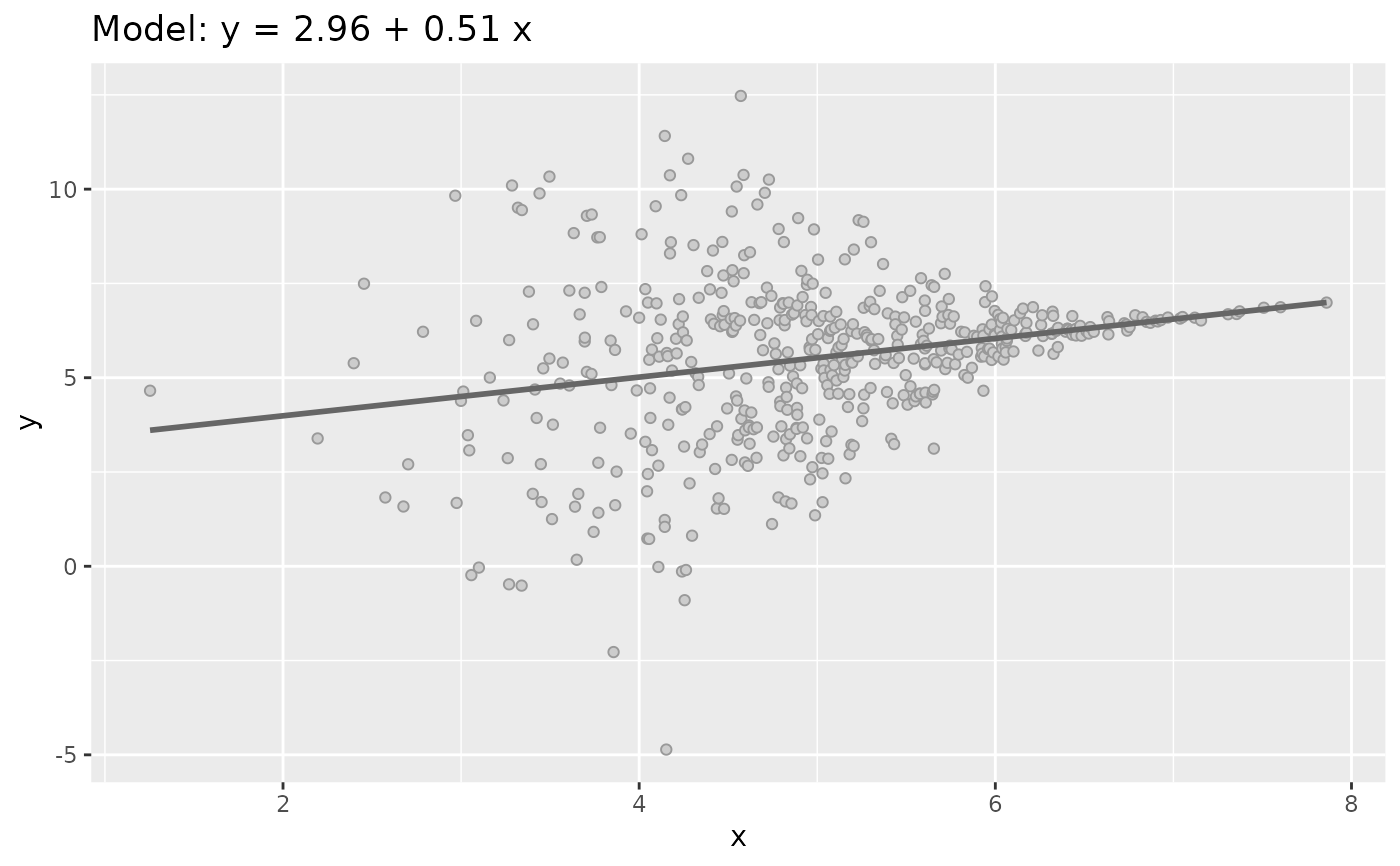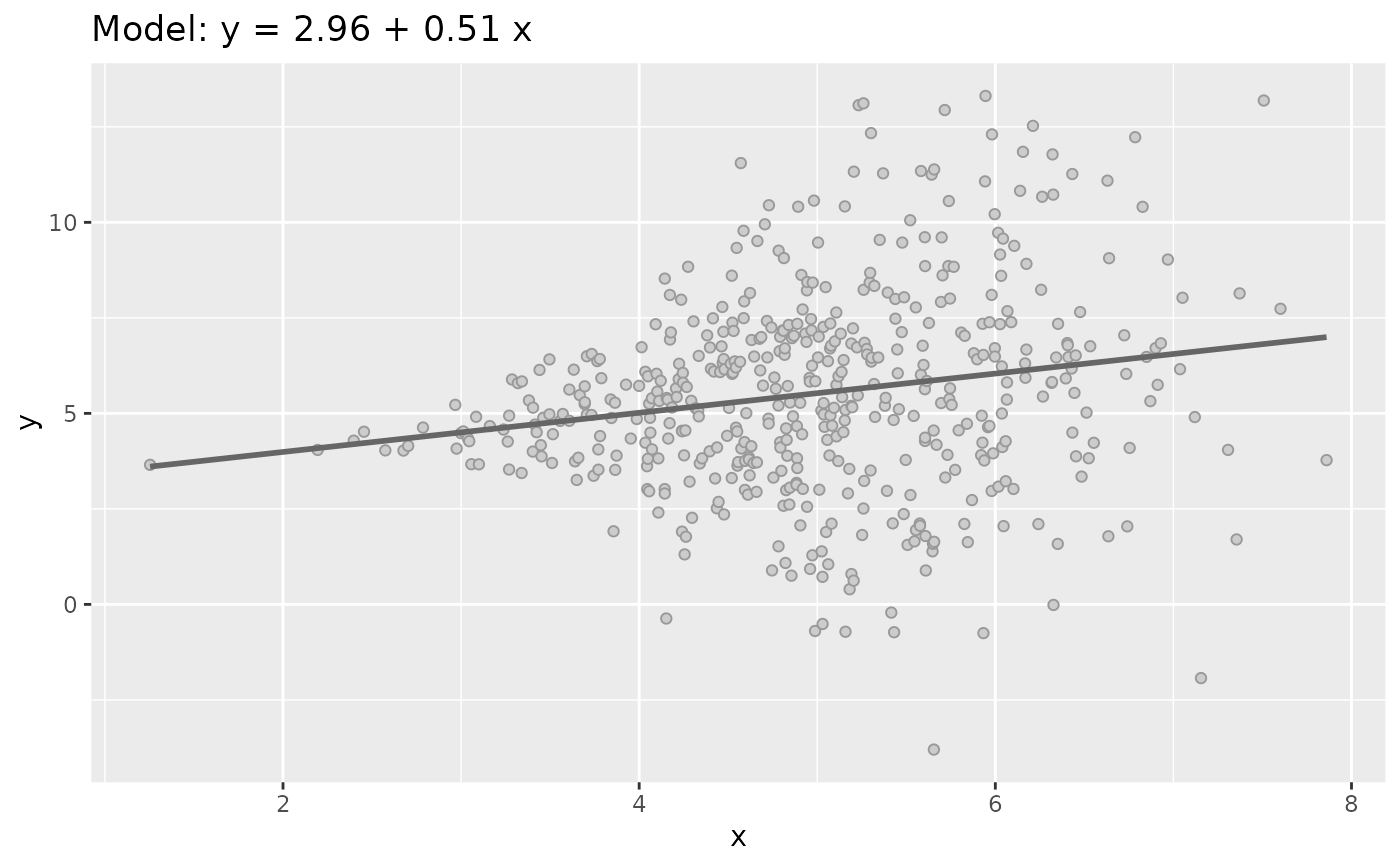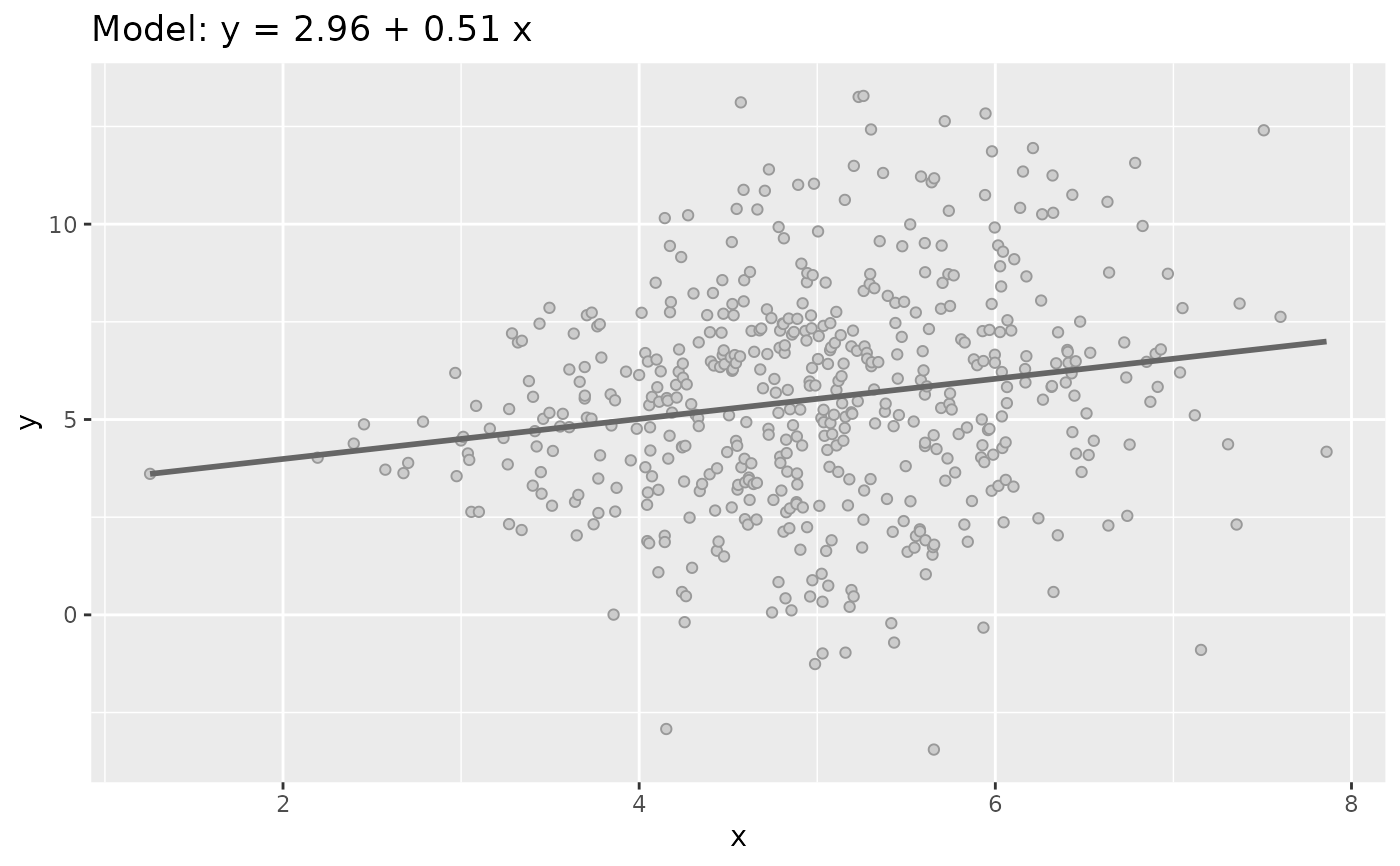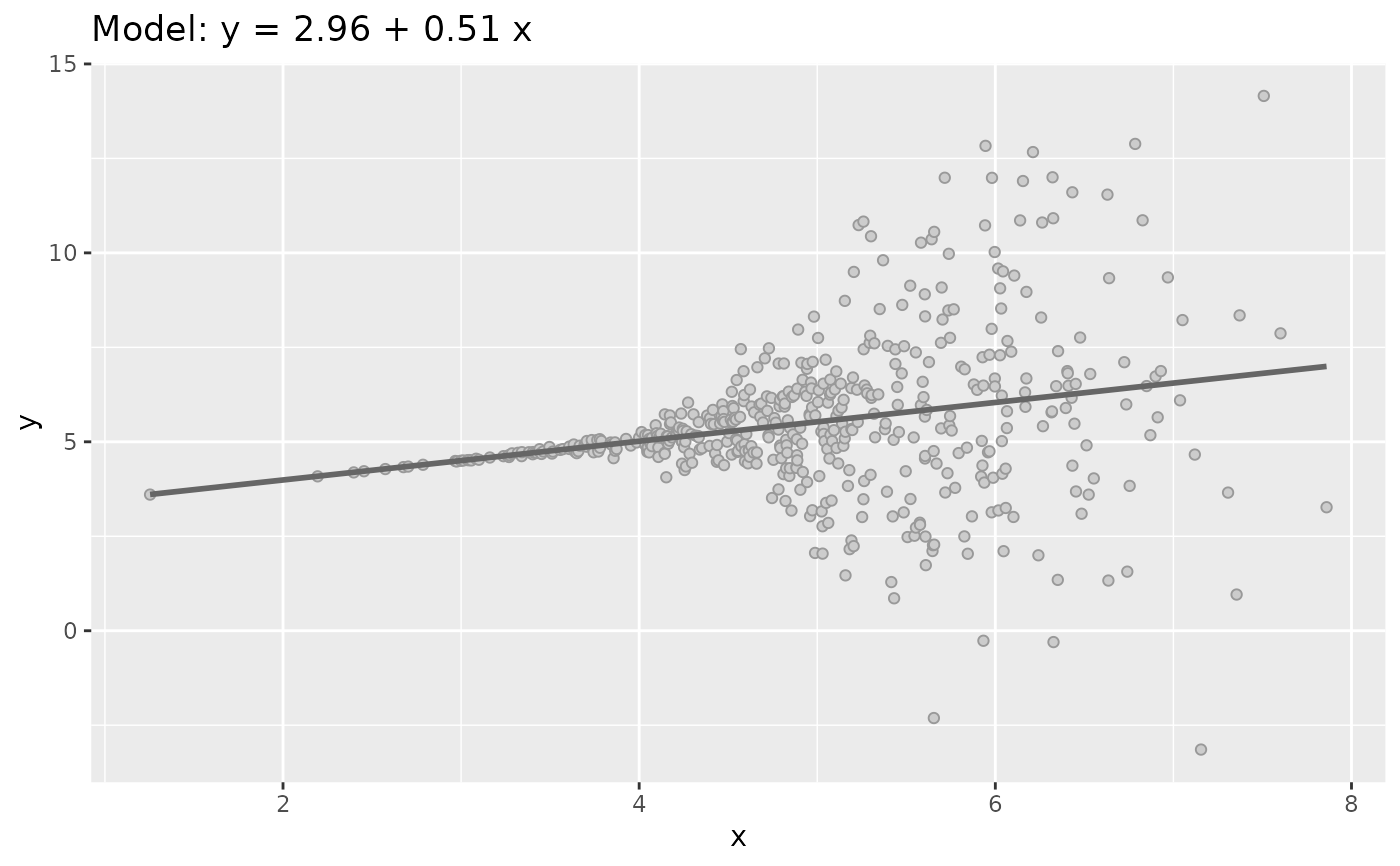Generate quasi Anscombe data sets Type 5: Heteroskedasticity
Source:R/quasianscombe.R
sim_quasianscombe_set_5.RdData sets Type 5 recreates the phenomenon of heteroskedasticity in the residuals.
Arguments
- df
A data frame from
sim_quasianscombe_set_1(or similar).- fun
A function to apply to the index to multiply the residuals of the original model.
- residual_factor
Numeric value to multiply residual to modify their variance.
Details
This function will take residuals $e_i$ and then get $e'_i = e_i * fun(i)$ and then rescale the $e'_i$ to the range of $e_i$.
Examples
df <- sim_quasianscombe_set_1()
dataset5 <- sim_quasianscombe_set_5(df)
dataset5
#> # A tibble: 500 × 2
#> x y
#> <dbl> <dbl>
#> 1 1.25 3.61
#> 2 2.19 4.08
#> 3 2.40 4.20
#> 4 2.45 4.25
#> 5 2.57 4.25
#> 6 2.68 4.30
#> 7 2.70 4.32
#> 8 2.79 4.42
#> 9 2.97 4.60
#> 10 2.97 4.42
#> # … with 490 more rows
plot(dataset5)
 plot(sim_quasianscombe_set_5(df, fun = rev))
plot(sim_quasianscombe_set_5(df, fun = rev))
 plot(sim_quasianscombe_set_5(df, fun = sqrt))
plot(sim_quasianscombe_set_5(df, fun = sqrt))
 plot(sim_quasianscombe_set_5(df, fun = log))
plot(sim_quasianscombe_set_5(df, fun = log))
 plot(sim_quasianscombe_set_5(df, fun = function(x) x^(1+0.6)))
plot(sim_quasianscombe_set_5(df, fun = function(x) x^(1+0.6)))
